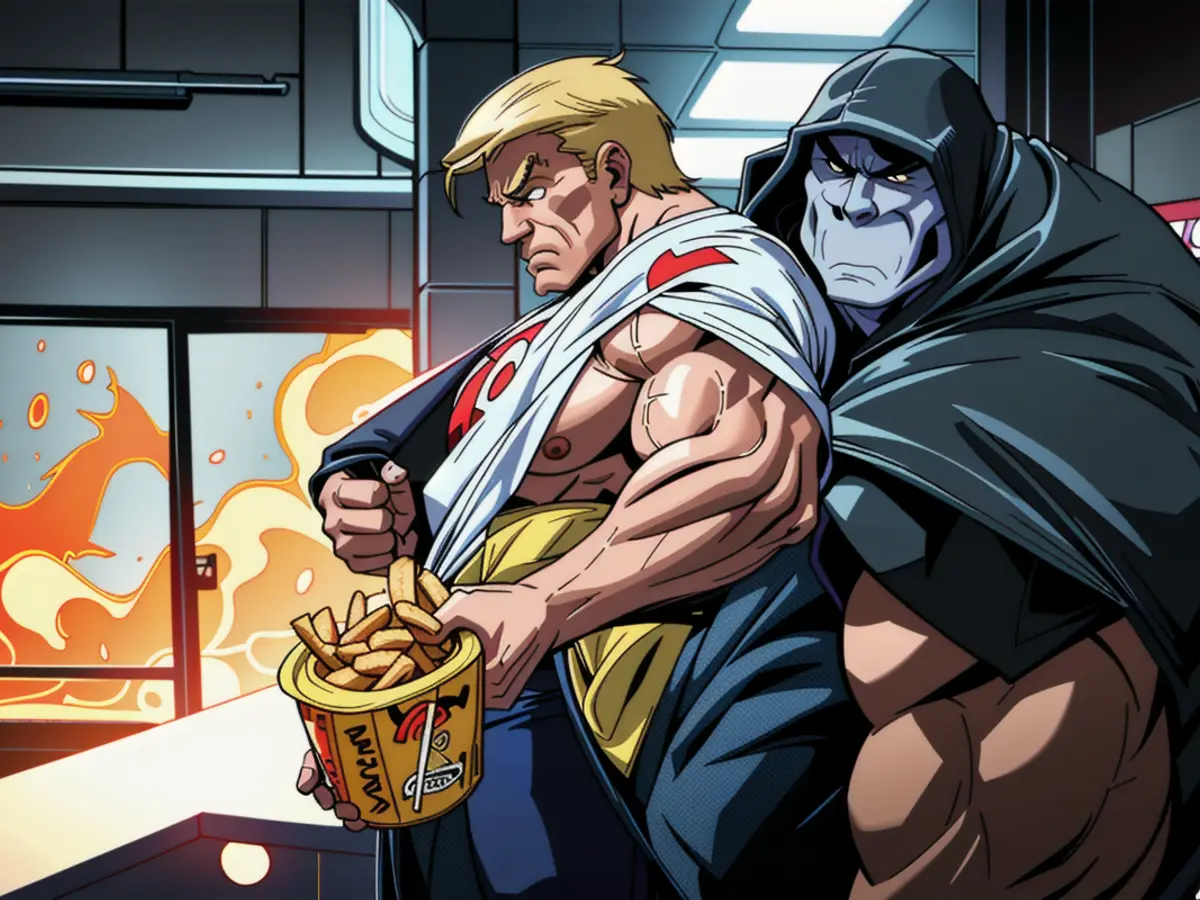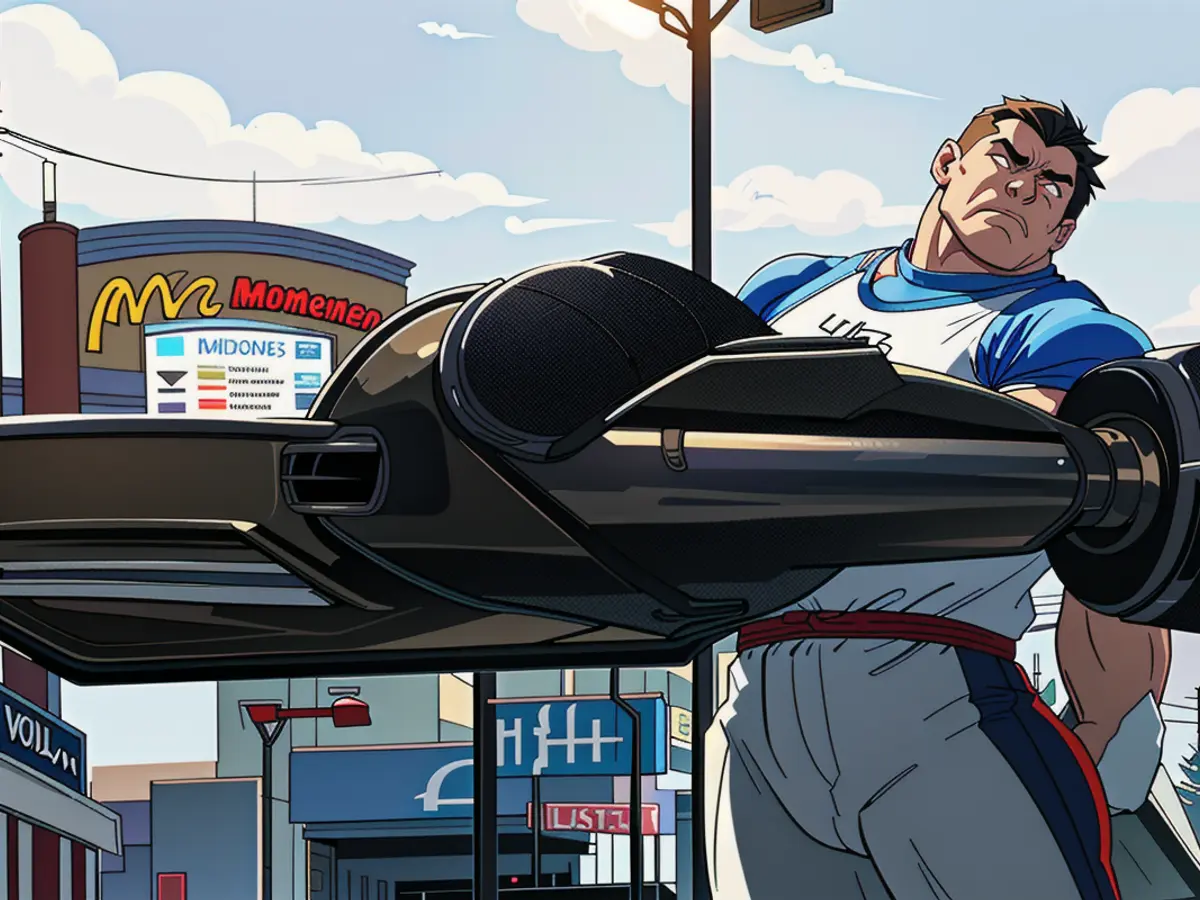McDonald's had an omnipresent presence this year, not confining itself merely to your observations.
Regardless of where the media focus shifted, the iconic golden arches always managed to catch a glimpse, playing a supporting role in various worldwide events (at times, even unwillingly stealing the spotlight).
This was evident during the Republican and Democratic presidential campaigns when Vice President Kamala Harris and her spouse emphasized their blue-collar backgrounds, having worked at McDonald's in the past. Trump, too, hopped on the bandwagon, making a brief and meticulously planned visit to McDonald's in Bucks County, Pennsylvania, at the drive-thru and fry station.
Another Pennsylvania McDonald's served as the setting for a high-stakes manhunt early this week, as an Altoona employee tipped off the authorities about a patron who resembled the suspect involved in the shooting of UnitedHealthcare's CEO in Manhattan.
This situation had a eerie resemblance to an April 2022 incident in Brooklyn, New York, where the gunman managed to evade capture for an astounding 30 hours before finally contacting authorities from..., yes, you guessed it, a McDonald's.
McDonald's even had a role to play in Major League Baseball this year, with Grimace momentarily giving the Mets a glimmer of hope for a world championship and New Yorkers a glimmer of hope for a Subway Series. Unfortunately, the Mets' dreams were dashed when they lost to the Dodgers in the playoffs.
The omnipresence of McDonald's in American life makes it a near-unavoidable backdrop for both consumer habits and cultural engagements, according to Marcia Chatelain, a professor of Africana studies at the University of Pennsylvania and the author of "Franchise: The Golden Arches in Black America."
"McDonald's is the main character in any story of the 20th and 21st century due to its immense impact on our lives... whether or not you frequent the establishment or enjoy it, you have some sort of relation to it," Chatelain shared with me. "It's one of the few institutions that everyone has a reference point for."
There are times when this main character status is more of an anti-hero role.
In the beginning of this year, the company experienced a PR issue as customers took to the internet to vent about rising menu prices. Although it was true that prices had increased, McDonald's executives gleefully shared on earnings calls their ability to upcharge, but much of this discontent seemed rooted in consumers' broader frustrations with inflation across the economy. However, it was simple to pin the blame on McDonald's for $3 hash browns, leading to a viral reaction on TikTok and an influx of support.
As a result, McDonald's became a sort of scapegoat for people who were tired of squeezing their budgets to afford food and began to suspect the role of corporate greed in the situation.
This outrage had substantial ramifications, as McDonald's saw a dip in US and global sales in the spring and summer, acknowledging they had overstepped their "pricing power." Executives promptly introduced value meals and promotions to win back customers, particularly lower-income consumers who have always formed their core consumer base.
It seemed to be working as sales began to increase due to the success of $5 meals and some limited-time souvenirs that won over customers once again.
However, in October, just days before reporting third-quarter earnings, an E.coli outbreak linked to onions in Quarter Pounders affected more than 100 individuals. The stock suffered, and the earnings call, which was expected to discuss recovery from a challenging quarter, was overshadowed by a public health crisis that will cost McDonald's an estimated $100 million in marketing and assistance for franchisees who lost business during the outbreak.
It's not only McDonald's ubiquitous presence in America that makes it a consistent headliner, Chatelain points out, but also the diminishing number of non-commercial public spaces where people can gather.
"When a restaurant like McDonald's becomes a third space—places where people can socialize, a place for children to spend their afternoons, and a seat for seniors to sip coffee—it starts to assume various roles, which raises the likelihood that it will become the setting for something significant," Chatelain explained.
"McDonald's is always in the frame because of the way taxpayer dollars subsidize large businesses and because the company's scale gives it an outsized influence," she noted. "We're always living in some way with McDonald's, and I think in many ways, we're all working for McDonald's—whether we work at a restaurant or not."
Correction: An earlier version of this article incorrectly stated which team the Mets lost to in the playoffs. The Mets lost to the Dodgers.
The Republican and Democratic presidential candidates, recognizing the symbolic value of McDonald's as a symbol of the American working class, often mentioned their past experiences working at McDonald's during their campaigns. McDonald's, with its widespread presence in American culture and life, serves as a meeting place and social space for many people, often placing it in the midst of significant events.





